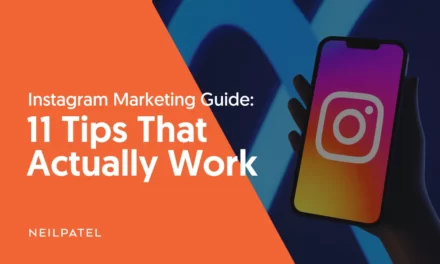
Latest SEO Trends

Latest SEO Trends In today’s fast-paced digital landscape, staying updated with the latest SEO trends is crucial for website owners and digital marketers alike. With search engine algorithms constantly evolving, it is important to understand the significance of embracing these trends to ensure online visibility and success. Let’s delve into the ever-changing world of SEO practices and explore how they have evolved in the digital age.
Mobile Optimization: A Game-Changer in SEO
With the exponential rise in mobile users, optimizing websites for mobile devices has become a game-changer in the world of SEO. The increasing number of people relying on their smartphones and tablets to access information and make online purchases has prompted search engines to prioritize mobile-friendly websites in their search results.
To ensure your website is mobile-friendly, you need to adopt mobile-first indexing. This means that search engines will primarily crawl and index the mobile version of your website. To excel in mobile-first indexing, it is crucial to design responsive websites that adapt seamlessly to various screen sizes.
Furthermore, Accelerated Mobile Pages (AMP) have emerged as an effective way to enhance the mobile browsing experience. By implementing AMP, you can optimize the loading speed of your web pages, making them lightning-fast for mobile users.
Voice Search: Optimizing for the Future
Voice assistants like Siri, Alexa, and Google Assistant have gained enormous popularity in recent years, leading to a significant increase in voice search usage. To stay ahead of the curve, optimizing your website for voice search is vital.
Structured data and schema markup play a crucial role in voice search optimization. By implementing the appropriate schema markup, you can provide search engines with valuable context about your content, making it easier for voice assistants to understand and extract relevant information.
Additionally, optimizing your content for voice queries and natural language processing is essential. Voice search queries tend to be more conversational in nature, so tailoring your content to match these queries can greatly improve your chances of appearing in voice search results.
User Experience and Core Web Vitals
User experience (UX) has become an integral part of SEO ranking. Search engines, such as Google, prioritize websites that offer a seamless and satisfactory user experience. To enhance your website’s UX, you need to focus on Core Web Vitals.
Core Web Vitals are a set of essential metrics that measure various aspects of user experience. These metrics include Largest Contentful Paint (LCP), which measures the loading speed of the main content, First Input Delay (FID), which gauges responsiveness, and Cumulative Layout Shift (CLS), which assesses visual stability.
Improving your page speed, interactivity, and visual stability can have a significant impact on your SEO performance. Optimizing images, minimizing server response time, and leveraging caching techniques are some of the strategies to improve these Core Web Vitals.
The Influence of Artificial Intelligence (AI)
Artificial Intelligence (AI) and machine learning algorithms have transformed the search landscape. Search engines like Google utilize AI-driven algorithms to understand user intent better and deliver more relevant search results. One of the most notable AI-driven algorithms is RankBrain.
RankBrain is Google’s AI system that helps interpret search queries and understand the context behind them. By understanding user behavior and preferences, RankBrain continually refines search results to provide the most accurate and helpful information.
Furthermore, AI can also be leveraged for content creation and personalized user experiences. By analyzing user data and behavior patterns, AI can help identify content opportunities and tailor personalized experiences for individual users.
Featured Snippets and Rich Results
Featured snippets have revolutionized search results by providing users with concise and relevant information at the top of the search page. To optimize your chances of appearing in featured snippets, structuring your content in a way that directly answers common user queries is crucial.
Implementing schema markup, a type of structured data, can greatly enhance your visibility in search results. Schema markup provides search engines with additional context about your content, making it more likely to be featured prominently.
Utilizing schema markup also enables you to achieve rich results, which include visually appealing elements like star ratings, images, and detailed information. With rich results, you can capture users’ attention and stand out from the competition.
Video SEO: Capitalizing on Visual Content
The popularity of video content has skyrocketed, making it a powerful tool in digital marketing strategies. To optimize your videos for search engine rankings and visibility, there are several tactics you should employ.
Firstly, optimizing video titles, descriptions, and tags with relevant keywords can greatly improve your video’s visibility in search results. Additionally, creating an engaging and informative video transcript can help search engines understand the content of your video more effectively.
Implementing video schema markup and video sitemaps are also essential for better indexing. These techniques allow search engines to crawl and understand your video content, increasing the likelihood of it appearing in search results.
Local SEO: Targeting Your Local Audience
For businesses targeting specific regions, local SEO is of utmost importance. Optimizing your website for local search can help you appear in localized search results and attract relevant local traffic.
One crucial step in local SEO is optimizing your Google My Business profile. Providing accurate information, such as your business address, operating hours, and contact details, ensures that your business appears in local search results and map listings.
Additionally, obtaining local citations from authoritative websites and niche directories can greatly enhance your local SEO efforts. Consistency in your business information across various directories is crucial for search engines to trust and prioritize your website in local search results.
E-A-T Principle: Building Trust and Authority
The E-A-T principle, which stands for Expertise, Authoritativeness, and Trustworthiness, has become increasingly important in SEO. Building high-quality backlinks from reputable sources and creating authoritative content are essential for establishing trust and authority.
User-generated content and social proof also play a significant role in building credibility. Encouraging user reviews, testimonials, and social media engagement can enhance the perceived trustworthiness of your website.
Mobile-First Indexing: Beyond Responsiveness
Preparing your website for mobile-first indexing goes beyond merely ensuring its responsiveness. It involves comprehensive optimization techniques to meet the demands of mobile users.
Implementing Accelerated Mobile Pages (AMP) and Progressive Web Apps (PWA) can greatly improve your website’s mobile performance. AMP ensures fast loading times, while PWA offers users an app-like experience on the web.
Considering mobile usability and design elements, such as intuitive navigation, readable fonts, and strategically placed call-to-action buttons, can significantly enhance the mobile user experience and improve your website’s performance in search results.
The Influence of Social Signals on SEO
Social media signals, such as likes, shares, and comments, have increasingly become indicators of website quality and relevance. Engaging in social media platforms can benefit your SEO efforts in various ways.
Leveraging social media for link building and content promotion can amplify the reach and visibility of your website. By sharing valuable content and actively engaging with your audience, you can attract more organic links and encourage social sharing, ultimately boosting your SEO rankings.
Additionally, social media engagement can drive traffic to your website, increase brand awareness, and facilitate brand mentions – all of which can positively impact your SEO performance.
Optimizing for Featured Snippets: Standing Out in Search Results
Featured snippets have become highly coveted spots in search results as they provide users with immediate answers to their queries. Structuring your content in a way that is eligible for featured snippets can greatly increase your organic traffic.
Identifying the different types of featured snippets, such as paragraph, list, or table, and tailoring your content accordingly can improve your chances of being featured. Providing concise answers and using clear headings can make your content more snippet-friendly.
Strategies like using bullet points, numbered lists, and creating comprehensive FAQs sections can increase the likelihood of your content being selected for featured snippets.
User-Intent Targeting: Crafting Content for Search Intent
Understanding user intent is crucial for creating relevant and valuable content that aligns with the expectations of search engine users. Differentiating between informational, navigational, and transactional queries can guide your content creation process.
Optimizing your content to match the search intent can significantly improve your chances of ranking higher in search results and attracting qualified organic traffic.
Visual Search: Unlocking Visual Content Opportunities
The rise of visual search technology has opened up new opportunities for businesses to enhance their online presence. Optimizing images for search engines can improve your visibility in visual search results.
Utilizing alt tags and descriptive filenames that incorporate relevant keywords can help search engines understand the content of your images. Additionally, optimizing the load time of your images by compressing them without compromising quality is essential for good user experience and faster page speed.
Implementing schema markup for images can also provide search engines with additional context, making it more likely for your images to be displayed in visual search results. This can drive additional traffic to your website and increase brand exposure.
Mobile SEO: Enhancing Mobile Rankings and Experience
Creating a mobile-friendly website is no longer an option; it is a necessity. Mobile SEO involves implementing best practices to enhance mobile rankings and provide users with an optimal mobile experience.
Designing a responsive website that adjusts to different screen sizes and orientations is fundamental. With an increasing number of users accessing websites on their mobile devices, a seamless and intuitive mobile design is key to capturing and retaining their attention.
Additionally, mobile on-page optimization techniques, such as optimizing meta tags, headers, and content, can improve your website’s visibility in mobile search results. Conducting mobile usability testing and evaluating metrics like mobile bounce rate and time on page is vital for identifying areas of improvement and delivering a superior mobile experience.
Voice Assistance: SEO Strategies for Voice-Activated Devices
With the rise of voice-activated devices, optimizing your content for voice search is paramount. Understanding the intent behind voice queries and tailoring your content to match the conversational nature of voice search is essential.
Utilizing long-tail keywords and employing natural language processing techniques can greatly enhance your chances of appearing in voice search results. Answering common questions concisely and providing clear instructions can improve your visibility in voice-activated devices.
Furthermore, leveraging local SEO for voice-activated search results can boost your chances of being recommended by voice assistants for location-based queries. Optimizing your website for local search and accurately providing your business information is vital for voice search success.
Building a Strong SEO Foundation: Technical SEO Best Practices
While content is king, technical SEO forms the foundation for website optimization. Ensuring crawlability and indexing is crucial for search engines to discover and understand your website’s content.
XML sitemaps, robots.txt files, and canonical tags play a significant role in providing search engines with guidance regarding your website’s structure, content hierarchy, and preferred URLs. Optimizing these technical elements can influence how search engines crawl and index your website.
Implementing HTTPS migration is another crucial technical SEO practice. Not only does it enhance the security of your website, but it is also a ranking factor that search engines consider. HTTPS provides users with a safe browsing experience, instilling trust and confidence in your brand.
Site speed optimization and reducing technical errors are equally important. Optimizing server response time, leveraging browser caching, and fixing broken links and HTML errors can improve user experience, increase website credibility, and positively impact your SEO rankings.
Summary: The Future of SEO
In summary, staying updated with the latest SEO trends is vital for maintaining online visibility and success. Embracing mobile optimization, voice search, user experience, artificial intelligence, featured snippets, local SEO, E-A-T principle, and other emerging trends can give you a competitive edge in the ever-evolving digital landscape.
Keeping up with the evolution of search algorithms and incorporating these trends into your SEO strategies will contribute to improved search engine rankings, increased organic traffic, and enhanced user engagement.
FAQs: Addressing Common Concerns About SEO Trends
Are SEO trends constantly changing?
Yes, SEO trends are constantly evolving as search engine algorithms adapt and the digital landscape evolves. Staying updated with the latest SEO trends is crucial for maintaining a competitive online presence.
How can I optimize my website for mobile-first indexing?
To optimize your website for mobile-first indexing, ensure that it is responsive and mobile-friendly. Adopting Accelerated Mobile Pages (AMP) and Progressive Web Apps (PWA) can further enhance your website’s mobile performance.
What role does user experience play in SEO rankings?
User experience plays a significant role in SEO rankings. Search engines prioritize websites that offer a seamless and satisfactory user experience. Focusing on Core Web Vitals, such as page speed, interactivity, and visual stability, can improve your website’s user experience and boost SEO rankings.
How can AI impact my SEO efforts?
AI can have a profound impact on SEO efforts. Machine learning algorithms improve search algorithms, enhancing search result accuracy and relevance. Additionally, AI can be leveraged for content creation and personalized user experiences.
What steps can I take to optimize my content for featured snippets?
To optimize your content for featured snippets, structure it in a way that directly answers common user queries. Implementing schema markup and providing concise answers with clear headings can improve your chances of being featured.
































Recent Comments